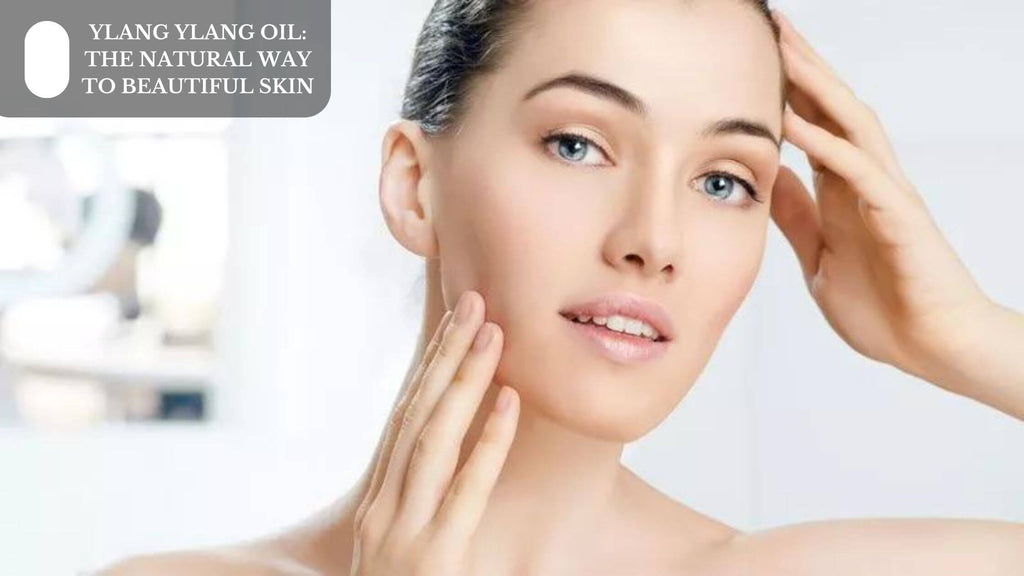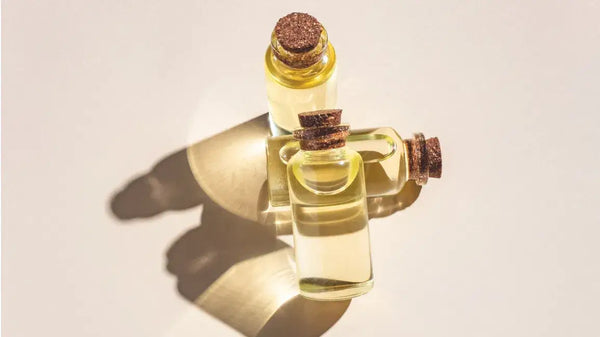Ylang Ylang Oil: The Natural Way To Beautiful Skin

Ylang-ylang oil is extracted from the leaves of the ylang-ylang tree which is native to Australia. It has an extremely sweet, but not overpowering, floral scent that has been likened to jasmine, orange blossom, and lemongrass. Ylang-ylang essential oil contains an antioxidant called limonene that is also found in citrus fruit oils such as lemon and orange. The oil is useful for treating major skin ailments such as eczema and psoriasis as well as improving the look of wrinkles in combination with other oils. It has sedative, anti-depressant, and calming effects on the body and mind. The light sweet scent is also thought to promote sexual arousal.
You may also like:
Ylang-ylang oil is one of the most popular essential oils used in aromatherapy, renowned for its universal properties that can be beneficial for everyone's health. The light floral scent promotes relaxation and induces feelings of calmness as it stimulates blood circulation through your body, thus promoting a feeling of well-being. The best places to apply ylang-ylang oil on your body are areas where there is high circulation, such as the wrists and behind the ears. Ylang-ylang essential oil can also be used to relieve muscle aches and pains. It is also known to relieve rheumatism, arthritis, gout, eczema, and psoriasis. The oil can be used as a general skin toner, or mixed in with your favorite moisturizer to nourish and rejuvenate dry skin.
Ylang Ylang Essential Oil Benefits For Skin:
1) For Treating Psoriasis
Applying ylang-ylang oil directly on the skin appears to have anti-psoriatic properties. It is effective for some people with psoriasis, but it is recommended that you test a small patch before massaging ylang oil over the psoriatic areas. You may need to use it for a few weeks or a couple of months before seeing improvement. Also, make sure that you continue using it at least 3 times per week otherwise it will not help.
2) For Treating Acne
Ylang-ylang oil can be safely applied directly on the skin as an over-the-counter treatment for acne. The oil can be used for acne on the face, back, neck, and even chest. You can also add some drops of ylang-ylang oil to your favorite moisturizer or oil-based cream.
3) To Reduce Scarring
Ylang-ylang essential oil is beneficial for reducing scarring by reducing the healing time of wounds and improving skin cell regeneration.
4) To Reduce Stretch Marks
Applying ylang-ylang oil to stretch marks on the abdomen helps to improve their appearance and encourages fading of old stretch marks when used regularly. The oil is also known to prevent the appearance of new stretch marks.
5) To Cleanse And Treat Oily Skin
Ylang-ylang essential oil is beneficial for treating acne, blackheads, and other blemishes by reducing the oiliness of the skin.
6) To Heal Psoriasis On The Scalp
Massage ylang-ylang oil onto your scalp, leave it overnight, and rinse it off in the morning with a mild shampoo. The eczema will start to disappear and the hair will become softer and stronger. You will experience a significant reduction in dandruff after using ylang-ylang essential oil for several weeks.
7) To Get Rid Of Stretch Marks On The Chest, Abdomen, And Arms
Applying ylang-ylang oil directly onto the stretch marks, up to a few times a week for a few months helps to improve their appearance.
8) To Treat Dry Skin
Use ylang-ylang essential oil as a moisturizer by massaging it into the skin. It also makes a great anti-aging skin care product to restore your lackluster skin to its youth.
9) For Boosting Immunity
For the body to be healthy, it is important to have a strong immune system. Ylang-ylang oil boosts immune system function by enhancing white blood cell activity. Applying ylang-ylang oil to painful areas helps to relieve muscle pain and aches. Stress is one of the most common causes of many mental diseases and ylang-ylang essential oil can help reduce stress, anxiety, depression, and insomnia by enhancing the function of neurotransmitters in the brain.
10) For Treating Athlete's Foot
Apply a few drops of ylang-ylang oil onto a cotton ball and dab it onto the affected area. Ylang-ylang essential oil is effective for some people with athlete's feet, but not for all. Do not apply it near your eyes.
How To Use Ylang-Ylang Oil For Skin?

Step 1: Wash your face with warm water and pat dry it.
Step 2: Apply a thin layer of ylang-ylang oil. You can also soak a piece of cotton wool in it and then place it on your face. Do this for 15 minutes before rinsing the oil off with cool water.
Step 3: Massage some more onto your neck, chest, and arms for a moisturizing effect.
Step 4: To increase the healing and soothing effects, apply some more oil on the affected area after you have had a shower.
Step 5: Use ylang-ylang oil as it is or add it to your favorite moisturizer. Make sure that you avoid getting it in your eyes or nose, as the oil can cause severe irritation.
You may also like:
Using ylang-ylang essential oil regularly can help to reduce wrinkles and promote younger-looking skin. It can also reduce scars and stretch marks on the skin, especially on the abdomen and chest area. It is safe to use this oil during pregnancy as there are no known side effects associated with it.
FAQs:
1) What is ylang-ylang essential oil good for?
Ylang-ylang essential oil is effective in treating acne, psoriasis, eczema, and other skin problems. It can also be used as a sedative to reduce stress and anxiety. It is also known to promote feelings of calmness by promoting blood circulation throughout your body.
2) How do I use ylang-ylang essential oil on my skin?
Ylang-ylang oil can be used topically by massaging it onto the affected area. You may use it alone or with your favorite moisturizer. Make sure that you avoid getting it in your eyes. Ylang-ylang oil can be used to reduce skin problems like psoriasis, acne, and eczema. It can also be used as a sedative to promote feelings of calmness, relieve stress and anxiety, and help with insomnia.


Leave a comment